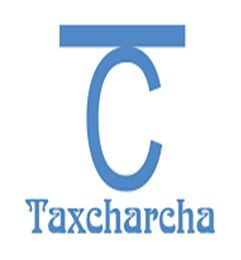In order to curb the practice of false entries on account of false invoices in order to save the tax by the taxpayer, the Finance Act 2020 has introduced a new section 271AAD in which the penalty has been levied on account of false entries or omission of any entry to evade the tax liability. Lets understand the concept by reading the provision:-
271AAD(1) Without prejudice to any other provisions of this Act, if during any proceeding under this Act, it is found that in the books of account maintained by any person there is—
(i) a false entry; or
(ii) an omission of any entry which is relevant for computation of total income of such person, to evade tax liability,
the Assessing Officer may direct that such person shall pay by way of penalty a sum equal to the aggregate amount of such false or omitted entry.
Thus, by reading the sub section (1), we can analyse the following:-
- The starting line of the sub section says “without prejudice to any other provisions of this Act”, that means the penalty under section 271AAD is in addition to the other penalty provisions under this act.
- There has to be a proceeding going on when the penalty should be imposed.
- The assessee on whom the penalty shall be imposed must have maintained the Books of Accounts, otherwise this section shall not be applicable to that taxpayer. In other words, the penalty under this sub section shall not be imposed on those who have not maintained any books of accounts.
- False entry has been explained as use or intention of use-
- Forged or falsified documents such as a false invoice or, in general, a false piece of documentary evidence; or
- Invoice in respect of supply or receipt of goods or services or both issued by the person or any other person without actual supply or receipt of such goods or services or both;or
- Invoice in respect of supply or receipt of goods or services or both to or from a person who does not exist.
Thus, the explanation very well covers the bogus entries on account of false invoices to avail the GST credits in which no actual supply of goods or services has been received as well as the false documentary evidences to claim any expense to claim such expense which has not incurred.
- The power to impose the penalty lies with the Assessing officer.
- The penalty amount shall be equal to the aggregate amount of such false or omitted entry.
Now we proceed to the sub section (2):-
271AAD(2) Without prejudice to the provisions of sub-section (1), the Assessing Officer may direct that any other person, who causes the person referred to in sub-section (1) in any manner to make a false entry or omits or causes to omit any entry referred to in that sub-section, shall pay by way of penalty a sum equal to the aggregate amount of such false or omitted entry.
By reading the sub section (2), we can analyse the following:-
- In addition to the penalty imposed under sub section (1), the Assessing officer “may” direct. In the sub section, the word “may” has been used instead of “shall” that means it is the discretion of the Assessing officer to impose the penalty on the accomplice of the person referred to in sub section (1).
- The penalty amount shall be equal to the aggregate amount of false entry or omitted entry.
Conclusion
By introducing this section, the Government has strictly shown its intent to curb any type of tax evasion on part of the taxpayer. Not only the Government wants to curb the net of bogus entries and the practice of claiming expenses in the books of accounts on account of false invoices being made by the taxpayers in order to evade the tax liability.

